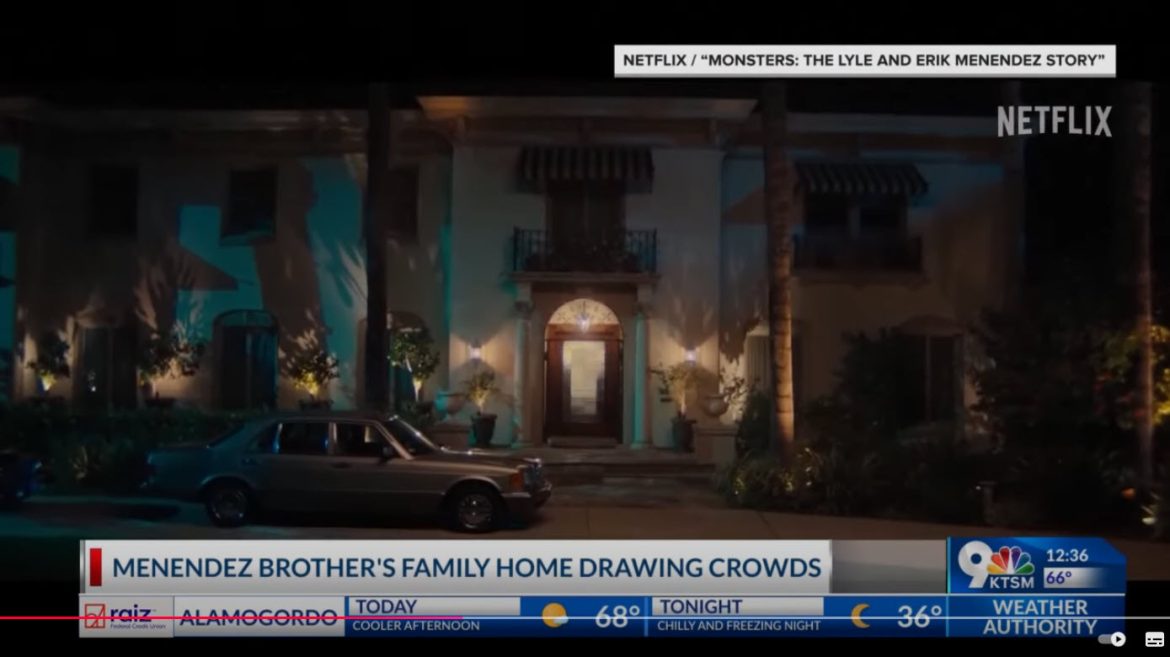The infamous Beverly Hills mansion where Erik and Lyle Menendez brutally murdered their parents, Jose and Kitty Menendez, in 1989 has become an unexpected tourist hotspot following the release of a Netflix docudrama that explores the case. Public interest in the Menendez brothers’ story has surged, driven by both the new documentary series and recent legal moves aiming to secure their early release. As a result, the residence, now privately owned, has attracted waves of curious visitors, sparking frustration among neighbors and prompting a flurry of calls to local police.
According to the Beverly Hills Police Department, officers have responded to at least 18 complaints in recent weeks, ranging from noise disturbances to alleged trespassing incidents. Neighbors report that both fans of the docudrama and true-crime enthusiasts regularly gather outside the mansion, taking photos and even attempting to enter the property. Mindy, a resident of the neighborhood, voiced her concern, noting that the increased activity has disrupted the normally quiet area. The mansion, previously rented by stars like Elton John and Prince before the Menendezes moved in, sold to new owners earlier this year for $17 million.
One tourist, Shanda, shared her fascination with the case, stating that she was drawn to visit the home due to the Netflix series and the ongoing efforts by supporters advocating for the brothers’ early release. Maximillian, another visitor, echoed similar sentiments, describing the Menendez brothers’ story as “one of the most complex cases of family tragedy.” For many visitors, the documentary has shed new light on allegations of abuse by the brothers, reigniting public debate over their motives and the fairness of their sentencing.
Legal developments add to the heightened attention. A December 11 hearing could mark a significant turning point in the Menendez brothers’ case, with a judge expected to rule on a petition that may reduce their convictions from murder to manslaughter. Their defense team argues that new evidence supporting the brothers’ claims of abuse should allow for a more lenient conviction, which, if accepted, could result in their immediate release. The upcoming hearing has galvanized support from those who believe the brothers acted in self-defense after enduring years of alleged abuse by their father, Jose.
The brothers’ clemency bid has gained further momentum with the backing of Los Angeles County District Attorney George Gascón, who recently urged California Governor Gavin Newsom to consider their request for clemency. If granted, the clemency petition could result in either reduced sentences or complete pardons, a controversial possibility that has polarized public opinion. Newsom’s office has yet to comment on whether the governor is inclined to grant clemency but is expected to review the case closely.
With the hearing date fast approaching and legal battles intensifying, the Menendez mansion remains a focal point for both supporters and critics of the clemency efforts. For some, the mansion stands as a haunting reminder of the tragic events that unfolded over three decades ago; for others, it symbolizes the potential for legal redemption amid new revelations.
As Beverly Hills adjusts to the influx of attention on the mansion, residents hope for a return to normalcy. Meanwhile, true-crime enthusiasts and supporters of the Menendez brothers continue to speculate about what December’s ruling may bring for Erik and Lyle Menendez—and how it might shape the narrative of one of America’s most infamous criminal cases.



